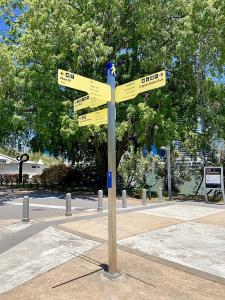 The church’s celebration of Pentecost each year is based on the ancient Jewish practice of the Feast of Weeks, a festival marking 50 days after Passover. This feast was originally a harvest celebration, denoting the end of the grain harvest, and occurred usually in the month Sivan (May/June). This dating matches only generally with the Christian calendar, counting six weeks after Easter. For Christians, the feast is now inextricably tied with the singular event of the gift of the Holy Spirit recorded in Acts 2. There is another tale of the gift of the Spirit in the Gospel of John, during the second of Jesus’s appearances to his disciples after his resurrection (John 20:19-23). In the history of the church, John’s account has been completely overshadowed by the grand tale found in Acts.
The church’s celebration of Pentecost each year is based on the ancient Jewish practice of the Feast of Weeks, a festival marking 50 days after Passover. This feast was originally a harvest celebration, denoting the end of the grain harvest, and occurred usually in the month Sivan (May/June). This dating matches only generally with the Christian calendar, counting six weeks after Easter. For Christians, the feast is now inextricably tied with the singular event of the gift of the Holy Spirit recorded in Acts 2. There is another tale of the gift of the Spirit in the Gospel of John, during the second of Jesus’s appearances to his disciples after his resurrection (John 20:19-23). In the history of the church, John’s account has been completely overshadowed by the grand tale found in Acts.
Though there remain any number of conservative commentators that still claim that there is historical fact underlying this story in Acts, such claims are very difficult to justify without accepting in full the obvious miraculous actions we read in the account. Of course, no one can tell anyone not to accept such miracles, but for those of us who cannot do so, we must look elsewhere than history to discover the value of the story for us today. Notwithstanding the lack of history here, there remain many valuable ideas that Luke imparts to us, ideas worthy of a close look, accompanied by an exciting sermon or lesson.
In Luke’s story of the Gospel, the disciples are commanded by the risen Jesus to remain in Jerusalem “until you have been clothed with power from on high” (Luke 24:49). While in Jerusalem, the eleven disciples who remain together witness Jesus’s Ascension, and choose Matthias to replace the betrayer, Judas. And then the promised “power from on high” makes its dramatic appearance. The disciples are first alerted that a powerful heavenly event is about to occur when they hear “a sound like the rush of a violent wind.” Note that it is not the wind that is heard but a sound like that of wind. When poets write, they enjoy the use of the word “like,” because it allows them to range freely in their imaginations to expand the minds of their readers/hearers. The Holy Spirit signals its approach with sound, something like the roar of wind, though not exactly like that. Immediately, Luke calls to our minds events from the Hebrew Bible. Among others, there are the loud sound from Sinai presaging the appearance of YHWH on the sacred mountain (Ex.19:16-19), the great wind associated with YHWH’s self-revelation to Elijah, also on the sacred mountain (1 Kings 19:11-12), as well as Elijah’s own miraculous ascension into heaven in his fiery chariot (2 Kings 2:11). This enormous sound fills the whole house where the disciples are sitting.
The drama continues as “individual tongues as of fire (literally “divided tongues”) appeared to them and sat upon each one of them” (Acts 2:3). Again, the poet uses the proposition “like/as” to fill out the imaginative scene; the tongues resting on each disciple were “as fire,” they were not exactly fire. Luke is constructing a canvas here, painting a scene of the coming of the Spirit that was promised explicitly at Jesus’s baptism by John who cried that the disciples all would be “baptized with the Holy Spirit and fire” (Luke 3:16). Of course, fire is a very common accompaniment to the epiphanies of God in the Hebrew Bible. A particularly apt example is found in the very ancient psalm 29:7 where both sound and fire appear: “the voice of YHWH flashes forth flames of fire.”
The disciples are now “filled with the Holy Spirit,” as Jesus promised in Luke 24:49 and in Acts 1:4-5, 8. The immediate result of this spirit filling is the miraculous gift of “other languages.” It is important to note that Luke’s emphasis here is not on ecstatic speech but rather on communication with all who are present at the scene. The miracle at Pentecost is not in any way the gift of “glossolalia,” that incomprehensible utterance that some have said marks the true presence of the Holy Spirit among believers. Of course, such peculiar utterances were present in the early church as Paul makes clear especially in his Corinthian letter, chapters 12-14. He claims the gift of ecstatic speech, but urges the church to focus its attention on understandable speaking rather than heavenly languages that no one can decipher. At 1 Cor.14:8-9, he makes his concern plain: “I thank God that I speak in tongues more than all of you; nevertheless in church I would rather speak five words with my mind, in order to instruct others also, than ten thousand words in a tongue.”
When I began my pastoral ministry in 1974 in Louisiana, glossolalia was a hot topic among the United Methodist churches in that state. Several members of my church said to me that they spoke in tongues in their private prayer practice, but went on to say that they would never do that in public worship, because they took Paul’s warnings very seriously: church, they said, was for understandable communication, not private ecstatic speech. When I came before the Board of the Ministry, seeking my ordination as Elder in the UMC, the entire one-hour interview was focused on this phenomenon. I was very glad that I had studied the Bible carefully on the matter and had something to say about it!
Though some have thought that Acts 2 describes an event of glossolalia, it plainly does not. What the newly inspired disciples are speaking are languages that their Galilean origins hardly prepared them to utter. The fact that they are speaking these languages clearly and forcefully is made obvious by the reactions of the “pious Jews” who have come to Jerusalem “from every nation under heaven” to celebrate the Feast of Weeks in the holy city. They are first attracted by “the sound” that came to fill the house, and then are “confused (and “astonished and amazed”) because each was hearing them (the disciples) speak in his own (that is the hearer’s) language” (Acts 2:6-7). Like Peter before them who was “amazed” at the empty tomb (Luke 24:12), and like the disciples on the road to Emmaus who were “astonished” at the report of the women about the empty tomb (Luke 24:22), so now the witnesses to the miracle of languages are both astonished and amazed. Each one of them, no matter where they are from, is hearing “the great deeds of God” (Acts 2:11) in their own native language.
What is happening at the Pentecost scene is a complete reversal of the disaster of languages at the tower of Babel at Gen.11:1-11. YHWH, incensed by the tower builder’s attempts at building a “tower with its top in the sky,” an obvious gambit to storm the place of YHWH, and by their refusal to “be fruitful, multiply, and fill the earth,” as YHWH had commanded again and again, comes down to see the obviously puny tower— YHWH apparently cannot even see the thing from where YHWH is!—and confuses their language so that they are forced to abandon the project completely. Multiple languages in Genesis are the punishment for hubris and the rejection of God’s commands. In Acts, the world’s languages are a gift to all who wish to hear and respond to the power of the gospel as it will be shared throughout the world among the many nations noted in Acts 2:9-11. And though some of the assembled crowd chalks up the multiple language- speaking to “new wine,” the drunken utterances of inebriated sots, those who are listening are actually hearing the gospel spoken in their native tongues by illiterate Galilean peasants. Language has become gift, not punishment.
In my home city of Los Angeles, it has been estimated that there are at least 175 first languages spoken, some of those I did not know even existed! My granddaughter is enrolled in a bilingual school in Culver City, where we live. In that school the teacher speaks only Spanish in the classroom, while the students do work both in English and Spanish. Saiorse is now in the first grade. Usually, we were told, by the 5th or 6th grade she will be effectively bilingual and able to communicate well with the huge Latino/Latina population that lives here in LA. It makes my smatterings of many languages—French, German, Hebrew—rather pathetic. I can read these languages, along with several ancient, now dead ones, but I cannot speak any of them well enough to be understood. I regret this deeply in my advancing age. The ability to speak another language offers insight into another culture, another way of thinking and being. When those Jerusalemites heard the gospel being spoken in their own language, it enabled them to hear clearly and powerfully truths that could literally change their lives. Such is the gift of Pentecost, the gift of God to a magnificent, linguistically diverse world.
(Images from Wikimedia Commons)











